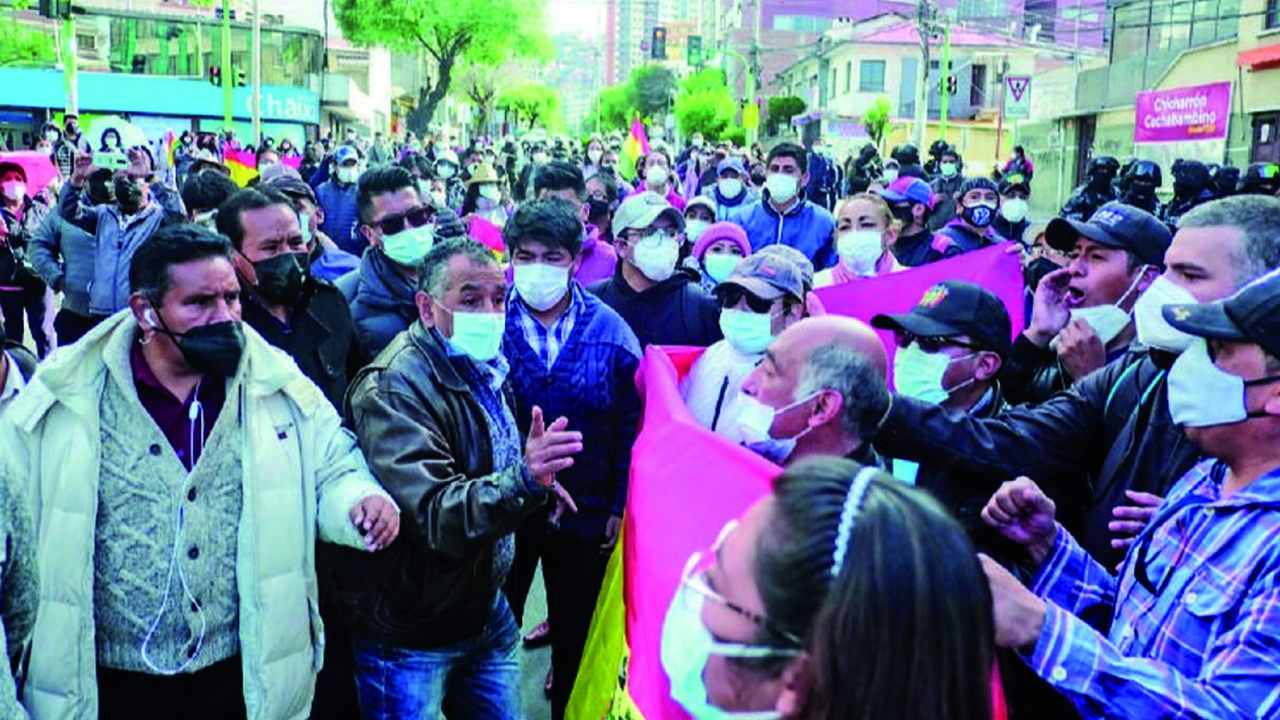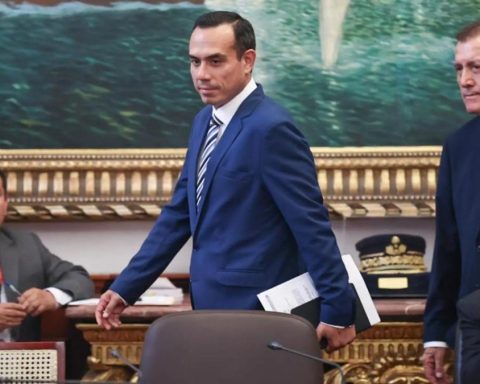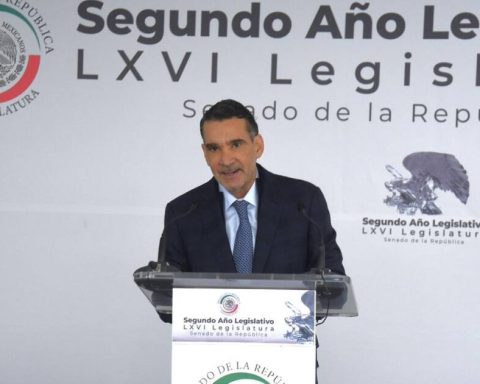Page Seven / La Paz
Businessmen and analysts see several threats to the economy in 2022. Among the main risks are lower growth, lack of natural gas, illiquidity in public accounts and a situation of stagflation (rising prices with stagnant growth).
Another great concern is that the coronavirus pandemic will rebound with new variants and economic activities cannot be normalized. However, the Government trusts that growth will reach a rate of 5.1% in this new administration.
The manager of the National Chamber of Commerce (CNC), Gustavo Jauregui, pointed out that one of the main risks is inflation, despite the expected rate of less than 1%.
“Let us remember that the INE reported negative inflation for a couple of months, which raised fear of the risk of deflation, which is nothing more than an oversupply of goods and services that can cause a general decrease in prices or an economic recession”, precise.
The CNC is also concerned about the high fiscal deficit and lower level of net international reserves (RIN) than expected by the Government.
“Although the unemployed in 2021 were in the order of 290 thousand people (6%), there is concern about the deterioration in the quality of employment, since at least 30,000 salaried workers went to work on their own,” warned Jauregui.
For the CNC, it is essential to improve the vaccination rate of the Bolivian population, since this will allow generating greater certainty and sustainability to the different economic activities in the country, with a view to the complete reactivation of the economy. Likewise, the orderly and complete return to face-to-face educational activity at different levels would be a sign of better conditions in the management of the pandemic.
The CNC estimates that in 2022 the economy will only grow by 4% due to a lower execution of public investment, an increase in government and family debt obligations.
The president of the National Chamber of Industries (CNI), Ibo Blazicevic, pointed out that one of the main threats that companies observe is that due to the drop in production there is a lack of gas.
“We have heard that we could have gas supply problems in 2022 and that could affect more than 160 industries whose primary matrix is gas consumption,” he stressed.
One concern for the sector is that the period of credit rescheduling is ending and debts will have to be paid and that will leave companies without liquidity. In addition, the lower income in the country could lead to a contraction in demand and deflation, and the anticipation of a higher tax collection expected by the Government may put more pressure on regular taxpayers.
Blazicevic believes that smuggling will continue to be one of the main threats and there will be more people dedicated to this activity if they cannot find work. The level of political and social conflict worries the industry in the same way.
Experts
The director of the Institute for Advanced Development Studies (Inesad), Beatriz Muriel, said that the main threat to the economy has to do with the unfavorable socio-political context that the country is experiencing. This is an aspect that discourages private investments, due to the uncertainty about the returns they may generate.
“This is exacerbated by observing few initiatives for conciliation and generation of agreements, especially from government authorities, which are calls to promote a constructive dialogue in the country,” said the economist.
Other risks have to do, he said, with the uncertainty about the fiscal accounts, in a context of low tax collections, decrease in the volumes of natural gas sales and low prospects of support to the productive sector through greater indebtedness.
“The high cost gap between being formal and informal will undoubtedly be an aspect that, if not addressed urgently, will further promote informality and illegality, with an increase in job insecurity,” he said.
He added that being formal in Bolivia has become a highly costly and “terror” decision, given the various and high burdens and procedures in labor and tax matters, and the multiple fines that emanate from these regulations.
The analyst Germán Molina said that internally a latent problem is the illiquidity of the General Treasury of the Nation (TGN), governments, municipalities, universities and companies, despite the fact that there is a rebound in activity this year.
In addition, he stressed that Bolivia and the world are subject to the pandemic not worsening, because that can contract the economy and the other bad news is that vaccines only last six months.
The other problem is the rise in interest rates in the United States, which will make money more expensive and make it difficult to issue sovereign government bonds.
“External conditions are adverse in 2022, Covid-19 continues to reappear, trade will decline, the US will raise interest rates to curb inflation and we are going to enter an economy with stagnation and inflation,” warned Molina.
The manager of the Bolivian Institute of Foreign Trade (IBCE), Gary Rodríguez, said that the main risk is that the economy will cool down.
“Stability is at risk because there is a lot of political and social confrontation, and if that is not solved, it could affect the economy in general. The expectations and stability of the economy is what should concern us. Political and social instability can lead to economic instability ”, he warned.
The IMF warns of risks of lower growth and higher inflation
The main cause for concern is the possibility that more aggressive variants of the SARS-CoV-2 virus will appear before reaching a general level of vaccination in the world.
In its report, it warned that inflation risks are tilted upward and could materialize if the mismatches between supply and demand produced by the pandemic persist longer than expected (and if the damage to supply potential turns out to be worse than projected), which would generate more sustained price pressures.
This, in addition to rising inflationary expectations that would anticipate monetary normalization in advanced economies.
The IMF raised its growth forecast for 2021 for Latin American and Caribbean countries, to 6.3%, 0.5 percentage points higher than the estimate in July. But for 2022 it revised its projection downwards, to 3% (-0.2 points).
Although the rebound has been sustained in 2021, it has not been enough to erase the historic recession of 2020 in the region, which led to a 7% contraction in GDP, well above the -3.1% worldwide, the agency said. .
For Bolivia, the IMF projects a growth rate of 4%, lower than the 5% it estimates this year. (AFP and Page Seven).


















